Garden Galleries
Ready to get inspired? Start here!

Early Bloomers
There are just certain sights – like freshly sprouted leaves, tiny newborn critters and small pops of blossom color – that tell us warm, spring weather is just around the corner. Take a look at these early spring bloomers and see which ones you can spot first!
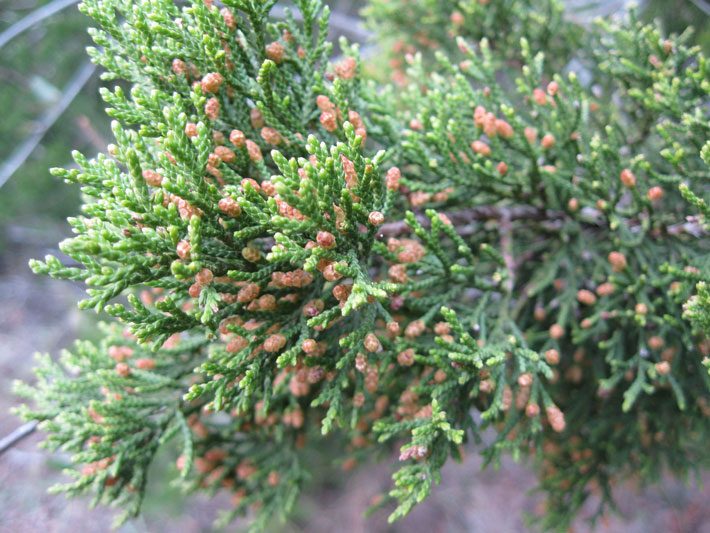
Cedar Bloom
Pictured here is one of Texas's most feared plants, the cedar tree. Tiny golden-brown flowers burst with pollen very early in the year and plague us all until about mid-February.
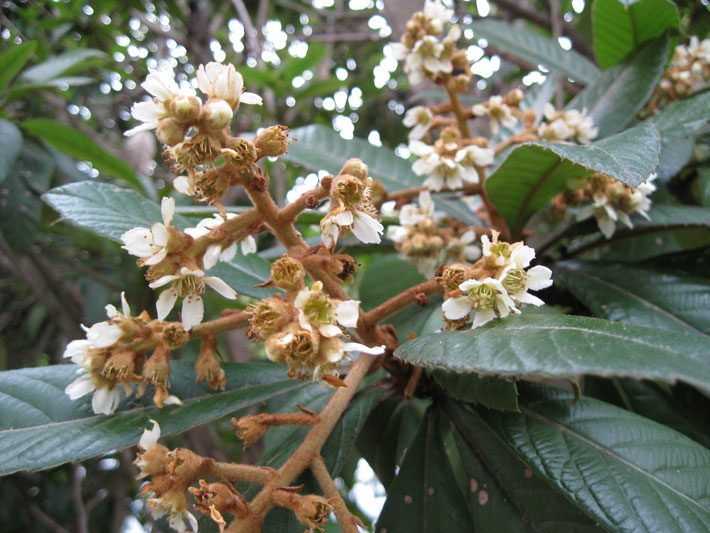
Loquat Blooms
Loquat trees are known for the popular summer fruit. In our area, they bloom during the winter time which makes fruit production uncertain, as occasional hard freezes can damage the tender flower buds.
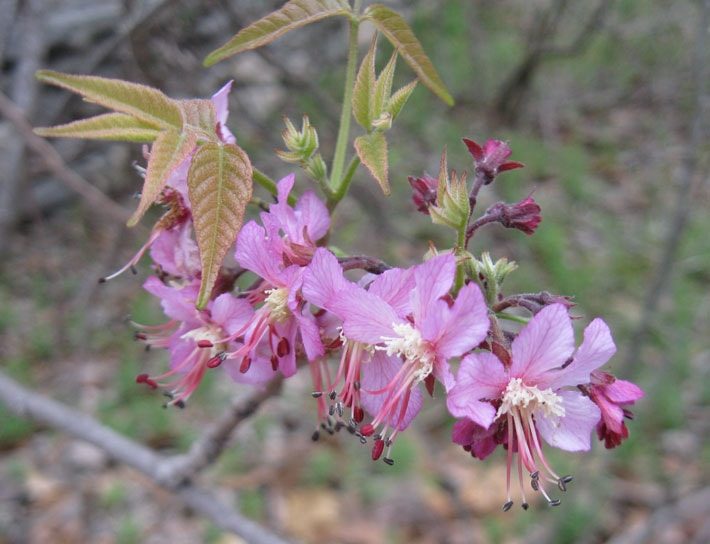
Mexican Buckeye Blooms
This native beauty (Ungnadia speciosa) begins blooming in March and is followed by large, curious-looking, three-capsuled seed pods that contain shiny, dark brown seeds. Bees make fragrant honey from the blooms.
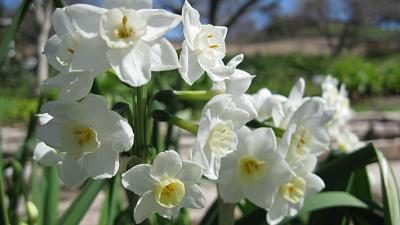
Paperwhites
Used primarily as an annual in our area, these paperwhites add a burst of brightness and an amazing aroma to the spring atmosphere.
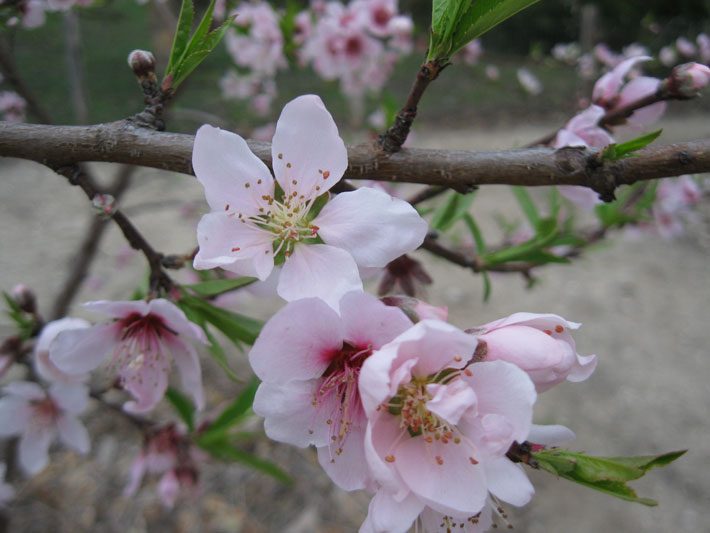
Peach Tree Blooms
One of the first groups of plants to bloom in spring are fruit trees, such as this darling peach tree that began blooming the first week of March. It's recommended that fruit trees also be planted in early spring, preferably during the months of January and February.
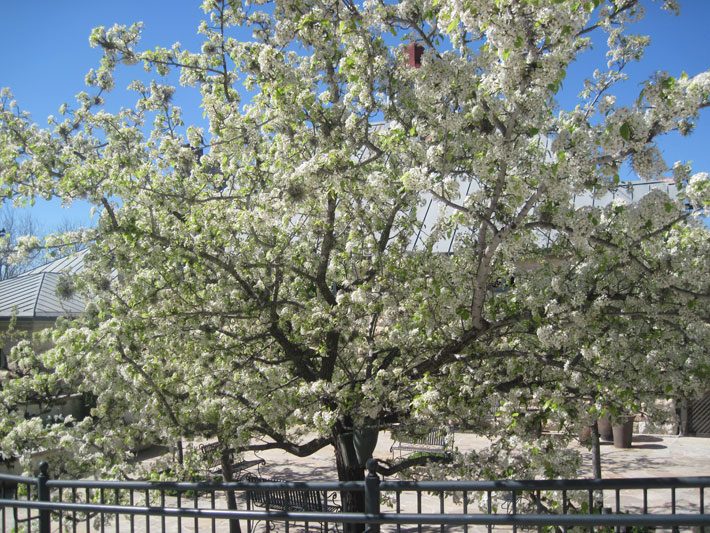
Pear Tree Blooms
Pear trees like this one are mesmerizing in early spring. Be careful, though, to know which pear tree variety you're planting. Not all of them produce edible fruit.
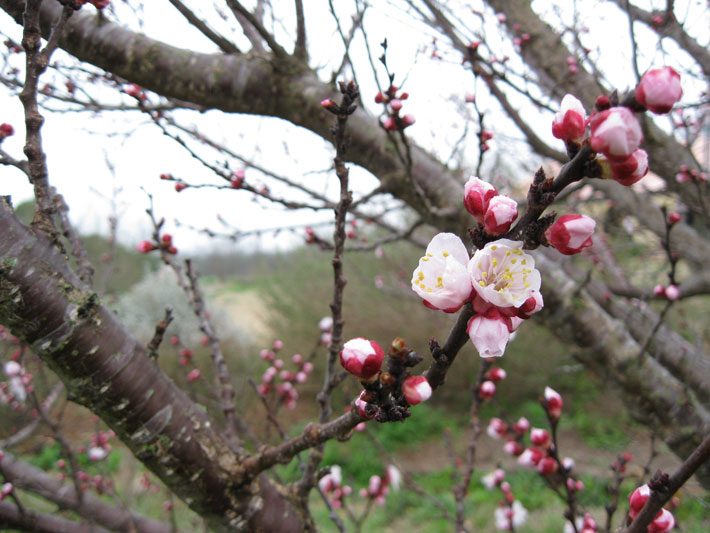
Plum Tree Blooms
Plums are an easy fruit to grow and often produce showy blooms in early spring before they even put on their leaves.
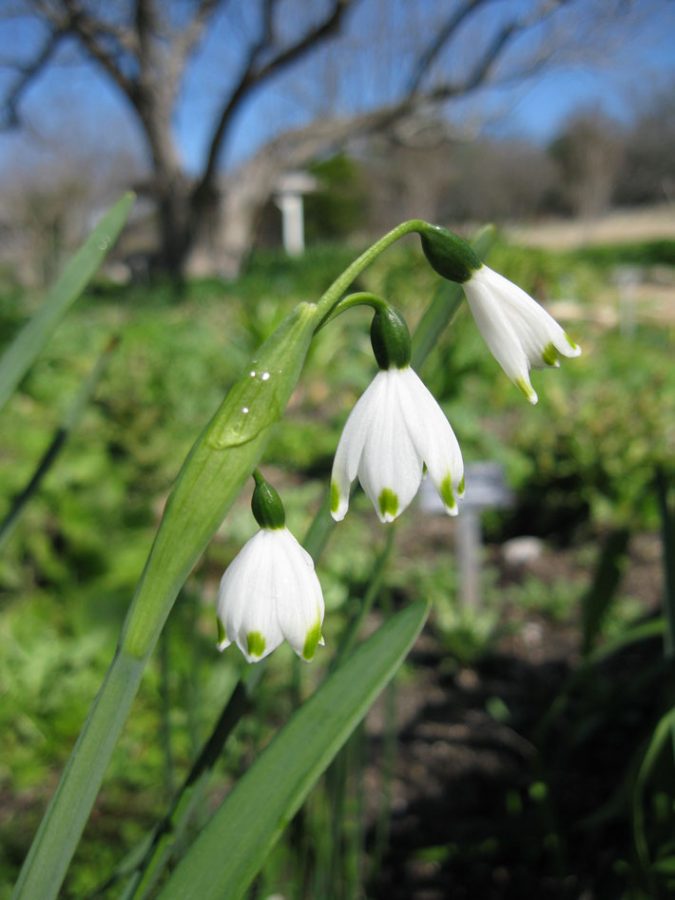
Snowflake Blooms
Have you ever considered adding bulbs to your garden? There are many that are well suited to calcareous soils, including this dainty spring beauty, known as Leucojum or snowflake.
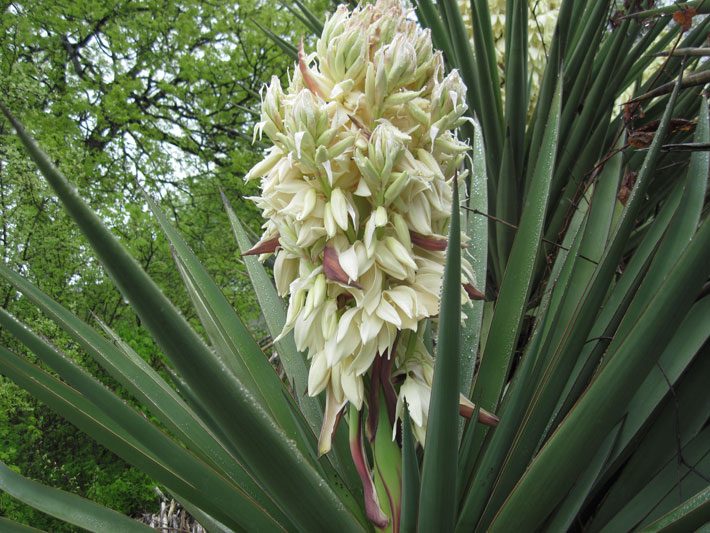
Yucca Blooms
Did you know that yuccas can only be pollinated by certain species of moths? These early spring bloomers don’t usually have an appealing fragrance, but they are amazingly tolerant of drought and rocky soils.



